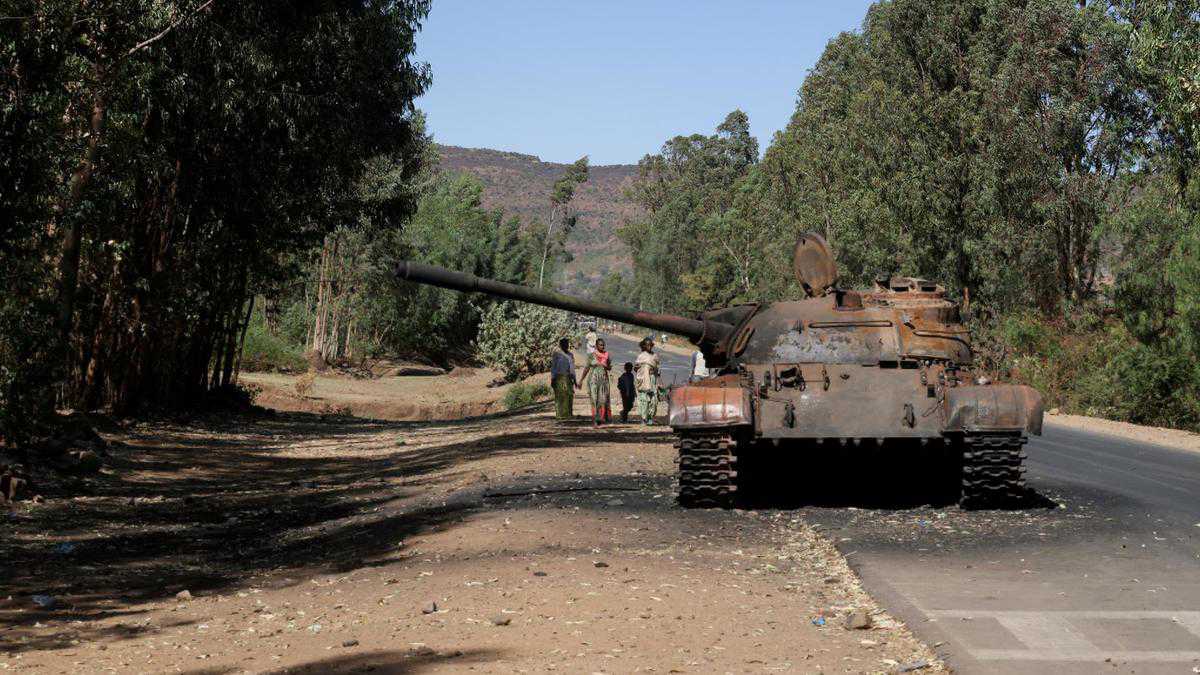Eritrea admits its troops remain in Ethiopia's Tigray region
18 April, 2021

Eritrea has admitted its troops get excited about the war in Ethiopia's northern Tigray region but vowed to pull them out amid mounting international pressure.
The country's first acknowledgement of its role in the fighting came in a letter from its UN ambassador to the Security Council, that was posted online by the Eritrea's information minister on Friday night.
Ethiopian Prime Minister Abiy Ahmed sent troops into Tigray in November to disarm and detain leaders of the region's once dominant political party, the Tigray People's Liberation Front (TPLF).
The Ethiopian and Eritrean governments primarily denied Eritrean troops were involved, contradicting testimony from residents, rights groups, aid workers, diplomats and even some Ethiopian civilian and military officials.
Mr Abiy finally acknowledged the Eritrean occurrence while talking with lawmakers last month, and vowed soon after that they might leave.
Eritrean forces are among various armed groups accused of committing human rights abuses in Tigray since Ethiopia’s federal army ousted the TPLF from the regional capital Mekelle in November. Tigray residents have repeatedly accused Eritrean troops of mass rape and massacres, including in the towns of Axum and Dengolat.
The Eritrean ambassador's letter said that with the TPLF "largely thwarted", Asmara and Addis Ababa "have agreed - at the best levels - to embark on the withdrawal of the Eritrean forces and the simultaneous redeployment of Ethiopian contingents along the international boundary".
The letter premiered a day after UN aid chief Mark Lowcock told the Security Council that Eritrea had not been answering global calls to withdraw its troops from the Tigray region.
Addressing a closed-door session, Mr Lowcock reported that 4.5 million persons out of about 6 million in Tigray needed humanitarian assistance as the conflict “is not over and things aren't improving”.
Aid staff continued to report atrocities committed by Eritrean forces, according to a draft copy of his comments to the council, which was obtained by The National.
“Without a ceasefire, this already grave humanitarian crisis is only going to get yourself a lot worse,” Mr Lowcock said.
“Since the conflict began, civilians have endured indiscriminate shelling of towns, targeted violence, mass killings and executions and systematic sexual violence as a weapon of war.”
An attack by Eritrean troops that left at least nine civilians dead in the Ethiopian town of Adwa on Monday showed the continued Eritrean military existence in Tigray despite promises last month that forces would withdraw.
“Neither the UN nor the humanitarian agencies we use have seen proof of Eritrean withdrawal,” said Mr Lowcock.
“We've, however, heard some reports of Eritrean soldiers now wearing Ethiopian Defence Force uniforms. And irrespective of uniform or insignia, humanitarian staff continue steadily to report new atrocities that they say are being committed by Eritrean Defence Forces.”
The Security Council meeting, held at the request of the united states, was its fifth debate on the violence in Tigray. Permanent members Russia and China have blocked calls for action by Western powers on what they consider to be an interior Ethiopian matter.
Source: www.thenationalnews.com
TAG(s):
